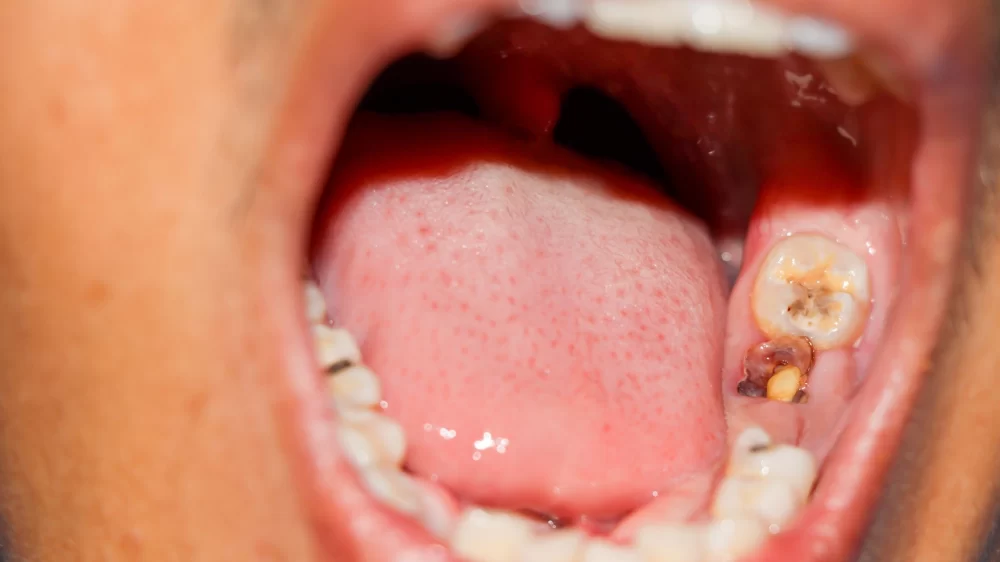
How to Naturally Treat Tooth Sensitivity at Home – Effective Remedies and Tips
If you've ever experienced a sharp, sudden pain when eating something hot, cold, or sweet, then you're probably familiar with tooth sensitivity. It can be an annoying and uncomfortable condition that can affect your daily life, but luckily, there are several natural ways to manage it at home. In this article, I'll share some simple and effective remedies that helped me and many others treat tooth sensitivity naturally and find relief. These methods are not only easy but also cost-effective, allowing you to improve your dental health without having to visit the dentist immediately.
What Causes Tooth Sensitivity?
Before diving into the remedies, it's essential to understand what causes tooth sensitivity. I learned that sensitive teeth occur when the protective enamel on our teeth wears down, exposing the underlying dentin. The dentin contains tiny tubules that lead to the nerve of the tooth. When these tubules are exposed, hot, cold, sweet, or acidic foods can trigger pain and discomfort.
In some cases, gum recession can also contribute to tooth sensitivity by exposing the tooth roots. Other factors, such as tooth grinding, poor oral hygiene, or even acidic foods, can worsen the condition. Knowing this helped me better understand how to manage the issue naturally at home.
1. Use a Desensitizing Toothpaste
One of the first things I tried was using a toothpaste specifically formulated for sensitive teeth. These kinds of toothpastes contain compounds that help block the nerve signals responsible for the pain. I found that over time, it helped reduce my sensitivity significantly. While it may not provide instant relief, it certainly made a difference after consistent use.
When choosing a desensitizing toothpaste, make sure it's free from harsh abrasives that could further damage your enamel. Look for products that contain potassium nitrate or stannous fluoride, which are proven to help with tooth sensitivity.
2. Try Oil Pulling with Coconut Oil
Oil pulling was a practice I stumbled upon during my quest for natural remedies, and I have to say, it worked wonders for me! Oil pulling involves swishing a tablespoon of oil, such as coconut oil, around in your mouth for about 10-15 minutes. I did this daily, and I noticed a reduction in my tooth sensitivity. It also helped improve my overall oral hygiene.
Coconut oil has natural anti-inflammatory properties that can help soothe irritated gums and reduce bacterial buildup. By doing oil pulling, I also experienced less plaque buildup, which could contribute to sensitive teeth.
3. Use a Saltwater Rinse
Another simple yet effective home remedy I tried was rinsing my mouth with warm saltwater. This helps to reduce inflammation and promotes healing of any irritated gums or teeth. I mixed half a teaspoon of salt into warm water and swished it around my mouth for 30 seconds. The saltwater rinse helped soothe my sensitive teeth and improve the overall health of my gums.
4. Apply a Cold Compress for Immediate Relief
Sometimes, the pain from sensitive teeth can be intense and immediate. In such cases, applying a cold compress to the outside of your face can help numb the area and reduce the discomfort. I used this remedy whenever I had a sudden flare-up of pain. Just be sure not to apply ice directly to your teeth, as it could make the sensitivity worse.
5. Try the Benefits of Green Tea
Green tea is another remedy I discovered that helped soothe my sensitive teeth. It contains compounds known as catechins, which have antibacterial and anti-inflammatory properties. By drinking a cup of green tea each day or rinsing my mouth with it, I found that it helped reduce the discomfort caused by tooth sensitivity. It also helped keep my gums healthy, which is important when managing tooth sensitivity.
6. Avoid Acidic Foods and Beverages
One of the most important lifestyle changes I made was adjusting my diet. I realized that acidic foods and beverages, such as citrus fruits, sodas, and vinegar, can worsen tooth sensitivity. While I didn’t eliminate them completely, I started consuming them in moderation and made sure to brush my teeth afterward. I also made it a habit to rinse my mouth with water after consuming acidic foods to reduce the impact on my teeth.
7. Practice Proper Oral Hygiene
Proper oral hygiene was another crucial step in managing my tooth sensitivity. I made sure to brush my teeth with a soft-bristled toothbrush to avoid further enamel erosion. Additionally, I used gentle, circular motions while brushing, as aggressive brushing could cause my gums to recede and worsen sensitivity.
I also made it a point to floss daily and visit my dentist regularly for checkups. Maintaining healthy teeth and gums is essential in preventing tooth sensitivity from becoming worse.
8. Try the Benefits of Aloe Vera
Aloe vera is known for its soothing properties, and it’s a remedy that worked well for me. I applied a small amount of aloe vera gel to the affected area, allowing it to sit for a few minutes before rinsing. The cooling sensation of the aloe vera helped calm the pain, and over time, I noticed an improvement in my tooth sensitivity.
9. Quit Smoking
If you’re a smoker, quitting may significantly improve your tooth sensitivity. Smoking can cause gum recession, which can expose the sensitive parts of your teeth. Additionally, smoking weakens your immune system, making it harder for your gums to heal. By quitting smoking, I not only improved my overall health but also noticed a reduction in my tooth sensitivity.
Final Thoughts
Managing tooth sensitivity can be a challenge, but with the right natural remedies and lifestyle changes, you can find relief. Whether it's using desensitizing toothpaste, practicing oil pulling, or making dietary adjustments, there are plenty of effective solutions to try at home. If your tooth sensitivity persists, it's always a good idea to consult a dentist to rule out any underlying dental conditions.
If you're looking for more expert advice or dental care services, be sure to visit us at Dentistry Toothtruth for personalized recommendations to find the best dental clinics near you.







 Aspen Dental - Canton, GA4.0 (573 review)
Aspen Dental - Canton, GA4.0 (573 review) Tennison Nick DDS5.0 (42 review)
Tennison Nick DDS5.0 (42 review) Dillon Family Dentistry5.0 (114 review)
Dillon Family Dentistry5.0 (114 review) Dr. Cait Smiles4.0 (30 review)
Dr. Cait Smiles4.0 (30 review) Hamilton Mill Orthodontics4.0 (27 review)
Hamilton Mill Orthodontics4.0 (27 review) Joseph Spina III, DMD4.0 (40 review)
Joseph Spina III, DMD4.0 (40 review) The Importance of Oral Health Education During Pregnancy for a Healthy Pregnancy
The Importance of Oral Health Education During Pregnancy for a Healthy Pregnancy Best Tips for Brushing Your Teeth Properly for Healthy Gums: Essential Techniques for Oral Health
Best Tips for Brushing Your Teeth Properly for Healthy Gums: Essential Techniques for Oral Health Why Skipping Dental Checkups Can Lead to Bigger Oral Health Problems
Why Skipping Dental Checkups Can Lead to Bigger Oral Health Problems Advantages of Porcelain Dental Restorations
Advantages of Porcelain Dental Restorations How Can Diabetes Cause Tooth and Gum Problems? Preventing and Managing Oral Health Issues
How Can Diabetes Cause Tooth and Gum Problems? Preventing and Managing Oral Health Issues Healthy Habits for Promoting Good Oral Health and Hygiene: Tips for a Healthy Smile
Healthy Habits for Promoting Good Oral Health and Hygiene: Tips for a Healthy Smile